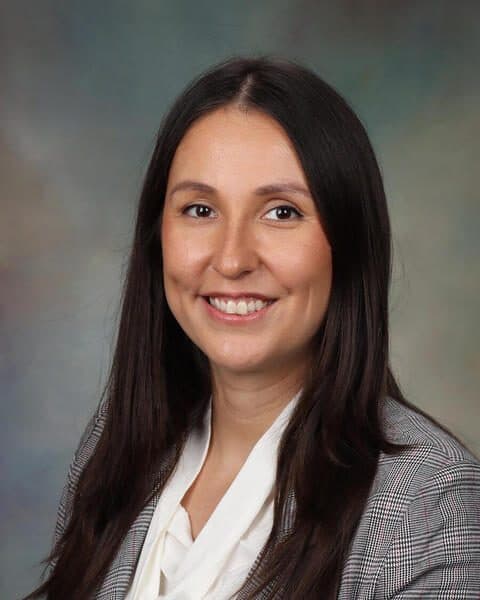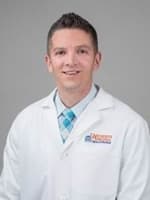Got an application question? Register for the virtual Q&A session, (1 p.m. ET, Monday, Feb. 16, 2026), which will give interested applicants the chance to ask previous fellows and members of the review committee questions about the process.

The American Thoracic Society is committed to improving health equity throughout the U.S. To this end, the ATS is pleased to accept applications for the 2026 ATS Fellowship in Health Equity and Diversity. This fellowship is designed to support the efforts of senior fellows, post-doctoral trainees, or junior faculty with research, clinical, educational and/or policy endeavors to advance health equity for patients with respiratory disease, critical care illness or injury, and sleep disordered breathing.
To facilitate the advancement of health equity, the ATS will provide financial support as a fellowship to a successful candidate as explained below:
- The ATS Fellowship in Health Equity and Diversity will provide up to $40,000 to support the efforts of the successful candidate from July 1, 2026, through June 30, 2027.
- In addition to efforts at their home institution, the fellow is expected to engage with ATS Advocacy and ATS Health Equity initiatives. While the ATS welcomes proposals in any topic related to improving health equity, the ATS is particularly interested in receiving proposals addressing health equity in the following areas:
- Health Insurance Policy
- Climate Change
- Tobacco
- Health Literacy
- Migrant Health
- Addressing health disparities in Pulmonary, Critical Care, and Sleep Training Programs.
- Interventions to address pulmonary, critical care, and/or sleep health disparities.
- The fellow will become a member of the ATS Health Equity and Diversity committee and participate in its activities (including monthly conference calls) throughout the year.
Candidate Qualifications
- Candidates must be senior fellows, post-doctoral fellows (research or clinical), or junior faculty (MD, PhD, or equivalent degree) at U.S.-based institutions.
- Candidates in fellowship must be enrolled in an accredited US-based Pulmonary Medicine (adult or pediatrics) or Pulmonary/Critical Care 3–4-year training program, an accredited Sleep Medicine training program, or a relevant post-doctoral training program.
- Candidates in training must have no less than one year of training remaining at the time of the award.
- Candidates on faculty must be junior faculty (instructor or assistant professor level) with less than three years on the faculty.
- Candidates must be mentored by a senior faculty member with experience in the field of pulmonary/critical care/sleep medicine and health disparities. These mentorship duties can be provided by more than one individual. Note that the development of a mentorship team is encouraged.
- Candidates must demonstrate an interest in pursuing a career in health equity.
- Candidate’s proposals are expected to generate information that can be shared with the pulmonary, critical care, and/or sleep community. Dissemination of pilot results through abstracts, case reports, manuscripts, or policy reports and/or recommendations are some examples of how to meet this expectation.
The fellowship is available to all candidates who meet the qualifications criteria. The ATS encourages applications from candidates from diverse groups.
Submission Instructions
- Deadline: The final application must be submitted electronically by midnight EST, March 13, 2026.
- The submission should be prepared in pages with 1-inch margins and text written in Arial 11-point font.
- The application should be submitted via the ATS submissions portal and must include the following information:
- Face page (1 page).
- Budget justification (up to $40,000) (1 page).
- Candidate's NIH-type biosketch (2-4 pages).
- Mentor's NIH-type biosketch. Biosketches must be provided for all members of the mentoring team (2-4 pages).
- Career statement by the candidate (1-2 pages). In your statement, please address the following:
- Your personal background and/or contributions to diversity and equity throughout your career.
- Your background and experiences in your current research area of study and how they relate to the project for which you are requesting funding.
- How this project will advance health equity in your area.
- Include anything specific you wish the committee to consider in reviewing your application.
- One to two-page supporting statement by mentor that defines the candidate's strengths as well as the mentoring program and confirms that the candidate will have protected time for the work proposed (1-2 pages).
- Project description. The project may include ongoing work of the fellow or novel programs to be initiated with fellowship support (2-3 pages).
Financial Guidelines:
Salary support for the grant recipient is allowed. Indirect costs are not allowed as part of the fellowship grant.
For questions about the 2026 ATS Fellowship in Health Equity application please contact Kimberly Lawrence at klawrence@thoracic.org.

2025-2026
Kevin Guzman, MD1
Columbia University Irving Medical Center
Project: Bridging the Outcome Gap: A Predictive Framework for MDR-TB and HIV Treatment Success

2024-2025
Ann-Marcia C. Tukpah, MD, MPH2
Brigham and Women's Hospital
Project: System Sclerosis Interstitial Lung Disease Risk Factors and Diagnostic Trajectory Modeling

2023-2024
Annie Rusk, MD3
Mayo Clinic, Arizona
Project: Respiratory Health Inequities in Indigenous North Americans: A Mixed Methods Study Addressing Chronic Obstructive Lung Disease Risk Factors and Advancing Individualized Medicine

2022-2023
Jamuna Krishnan, MD4
Weill Cornell Medical College
Project: Optimizing Comorbid COPD and Cardiovascular Disease Management Among Socially Disadvantaged Patients

2022-2023
Aaron Baugh, MD5
University of California San Francisco
Project: The Consequence of Changing Racial Paradigms on Access to Cancer Surgery

2021-2022
Christopher Chesley, MD6
University of Pennsylvania
Project: Determining Disparities in Care Quality for Patients with Acute Respiratory Failure and Sepsis: the Role of Hospital-Wide Capacity Strain

2020-2021
Deepshikha Charan Ashana, MD, MBA, MS7
Duke University
Project: Trauma, Conflict and Racial Disparities in the Intensive Care Unit

2019-2020
Isaretta L. Riley, MD, MPH8
Duke University
Project: AdheRence to Inhaled Corticosteroids in Asthma (ARICA)

2018-2019
Michelle Sharp, MD, MHS9
John Hopkins University
Project: Sarcoidosis Low Health Literacy Patient Education

2017-2018
Drew Harris MD10
University of Virginia
Project: Utilizing Medical Legal Partnership to Promote Asthma Health Equality

2016-2017
Edwin Jackson, DO11
Ohio State University
Project: Early Lung Cancer Detection Program

Inaugural fellow
2015-2016
Sarah M. Lyon, MD, MSCE
University of Pennsylvania
Project: Committee Platform and Tobacco
- Kevin Guzman, MD is a 4th-year Pulmonary and Critical Care Medicine Fellow at Columbia University Irving Medical Center. His research focuses on improving medication adherence and treatment outcomes among people living with HIV and multidrug-resistant tuberculosis (MDR-TB). He integrates implementation science, machine learning, and translational proteomics to identify early behavioral and biological predictors of treatment response. In addition to his research, Dr. Guzman is actively engaged in efforts to promote diversity, equity, and inclusion in academic medicine. back to text
- Ann-Marcia C. Tukpah, MD, MPH is an Instructor in Medicine at Brigham and Women’s Hospital in the division of Pulmonary and Critical Care Medicine. Her clinical interests combine interstitial lung disease (ILD) and clinical informatics/epidemiology methodology. Specifically, designing electronic-based cohorts of patients to conduct varied queries into ILD diagnosis, screening, management, outcomes, quality of life, and more. Her goal is to contribute towards comprehensive care (preventative, therapeutic, quality of life focused) and enhance clinical practice. back to text
- Annie Rusk, MD is an assistant professor of medicine at Mayo Clinic, Arizona with appointments in the divisions of Pulmonary and Critical Care Medicine. She is motivated to improve Native health as an enrolled member of the Blackfeet Nation. She strives to improve the respiratory health of Indigenous North Americans through rigorous, ethical clinical research. back to text
- Jamuna Krishnan, MD is an Early-Stage Investigator and pulmonary and critical care physician who is passionate about developing interventions targeted at overcoming healthcare disparities in chronic respiratory disease. Her long-standing interest in healthcare disparities led her to pursue a combined MD/MBA, focused on designing health systems to deliver high quality care for vulnerable populations. She also received rigorous research training through the recent completion of her Master’s in Clinical Epidemiology and Health Services. Her current research program is focused on characterizing gaps in the optimal management of comorbid COPD and cardiovascular disease (CVD) among socially disadvantaged patients and designing stakeholder engaged interventions to address these gaps. back to text
- Aaron Baugh, MD is a pulmonary and critical care physician at the University of San Francisco who focuses on improving the care of asthma and COPD for low-income and racial/ethnic minority individuals. His research program emphasizes understanding how social disparities inform differences in lung function and worse outcomes in lung disease. back to text
- Christopher Chesley, MD is a second year pulmonary and critical care fellow at the University of Pennsylvania. He is currently pursuing a Master’s of Science in Clinical Epidemiology. As an undergraduate he attended Washington University in St. Louis where he graduated with a Bachelor of Arts in biology and a minor in anthropology. As a medical student he attended the University of Chicago Pritzker School of Medicine, where he first pursued his interests in epidemiology and health policy. He attended the Hospital of the University of Pennsylvania for internal medicine residency and following this worked as a critical care hospitalist at the Penn Presbyterian Medical Center. Currently his research interests focus on processes of care within critical illness, how bias affects clinical decision making, and socioeconomic disparities in both healthcare and delivery with respect to critical illness. back to text
- Deepshikha Ashana, MD, MBA, MS research focuses on understanding and addressing mechanisms of differences in serious illness care among underserved patients. She uses mixed methods to study epidemiologic trends in national health claims data and understand patient perspectives on serious illness care, with a particular focus on modifiable clinician and health system factors. She received her undergraduate, medical, and business degrees from the University of Pennsylvania, before moving to Los Angeles to complete her internal medicine residency at the University of California, Los Angeles. She subsequently worked as a management consultant at McKinsey and Company where she gained experience in health system operations and change management. While completing a fellowship in pulmonary and critical care medicine at the University of Pennsylvania Health System, she received formal training in research methods through the Master of Science in Clinical Epidemiology program. She is currently an Assistant Professor of Medicine in the Division of Pulmonary and Critical Care. She cares for patients in the Duke University Hospital medical intensive care unit and at Duke Health Center at Southpoint. back to text
- Isaretta Riley, MD, MPH is a pulmonologist committed to eliminating disparities in health outcomes and quality of life of adults living with asthma. She aims to accomplish this by developing an independently funded line of research employing rigorous clinical research methods, through which she will identify and implement effective interventions to improve the health of populations most vulnerable to adverse asthma outcomes. Her areas of interest include medication adherence, access to care, community-engaged research, and implementation science. back to text
- Dr. Michelle Sharp is an Assistant Professor in the division of Pulmonary and Critical Care Medicine at the Johns Hopkins University School of Medicine and she serves as the co-Director of the Johns Hopkins Sarcoidosis Program. Dr. Sharp’s research is focused on improving clinical outcomes for patients with sarcoidosis. Through funding by the American Thoracic Society Fellowship in Health Equality, Dr. Sharp worked to develop appropriate health literacy patient education materials for patients with sarcoidosis. back to text
- Since entering medical school at the University of Pittsburgh, Drew has focused on improving the health of vulnerable populations. Drew has had several formative experiences in health equity, including 2 years working within the Indian Health Service caring for an impoverished Navajo and Hopi community in Arizona. During his IHS years, Drew became well-versed as to the importance of addressing social and environmental determinants of health to improve the health of vulnerable communities. While a pulmonary fellow at Yale, using a community-based participatory approach and partnering with a federally qualified community health center, Drew lead a study that identified common barriers in both the home and work environments that impede asthma symptom control in a disadvantaged community in New Haven. Through a better understanding of these barriers, such as fear of retaliation from landlords or employers, Drew is now focused on how to utilize legal advocacy as a component of a multidisciplinary approach to address the social and environmental determinants of health related to asthma in disadvantaged populations. As the 2017-2018 ATS Health Equality Fellow, Drew is junior faculty at the University of Virginia with a joint appointment in the Departments of Public Health Sciences and Medicine. Partnering with the Legal Aid Justice Center, UVA Law School faculty, the Housing Clinic within the UVA Law School, and the UVA Primary Care Center, Drew is leading a multidisciplinary community-engaged team of lawyers, doctors and social workers to develop and study the effectiveness of a multidisciplinary approach to asthma care in vulnerable populations, centered on a medical-legal partnership. In addition, he is partnering with the Legal Aid Justice Center to survey the home environments within the largest subsidized housing complexes in Charlottesville as a first step towards making systemic environmental improvements for Charlottesville’s poor, elderly and disabled populations. back to text
- Dr. Jackson is a practicing Pulmonary and Critical Care Medicine Physician at The Ohio State University Wexner Medical Center. He served as Chief Medical resident in Internal Medicine at The Cleveland Clinic Foundation and completed his training in Pulmonary and Critical Care Medicine at The Ohio State University. While at Ohio State he became the second American Thoracic Society (ATS) fellow in Health Equality. With the support of the ATS, Dr. Jackson developed and implemented a successful smoking cessation and Lung Cancer Screening program focused on socioeconomically disadvantaged and minority patients in Columbus Ohio. Dr. Jackson currently serves as the director of the James Cancer Center Early Lung Cancer Detection Program. In addition, his clinical portfolio focuses on the efficient delivery of health care to those suffering from smoking related lung diseases. back to text